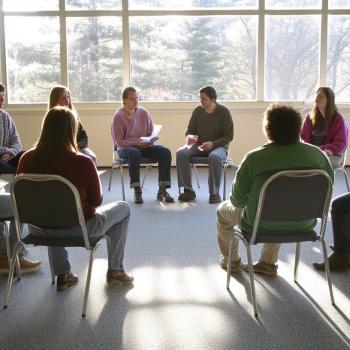Caste is more alive today in the Indian political system because people see its utility in social and economic upliftment, as well as an instrument of political mobilization. It would be accurate to state that the goal of achieving a post-caste society, where one's caste is an irrelevant moniker, is impeded by the very same politicians that vilify the caste system as a grotesque relic. Political and caste-based violence have become inextricably intertwined as opposing political parties represent the interests of various castes, for instance landlords and landless laborers.
What teachings in Hinduism contradict the caste system?
Divinely revealed Hindu scriptures such as the Vedas and Upanishads deal with eternal truths such as the relationship of individuals to God, the purpose of human life, and various spiritual paths or techniques (yogas) to attain such ends. There is hardly any mention of caste in these texts and certainly no implication that "backward" castes are ineligible for spiritual advancement. In fact, many of these texts were authored by saints from the "backward" castes.
These scriptures state emphatically that divinity is inherent in every individual; that the ultimate purpose of Hindu spirituality and religion is to know, grow closer to, and experience, this divinity; and that all physical/social differences such as caste, gender, race, etc. are wholly unrelated to one's ability to achieve that goal. Numerous Hindu sacred texts, morality tales, and commentaries extol sama-drishti -- or the capability to look upon all life forms, let alone all humans, as equal. Thus, caste-based discrimination represents a societal neglect of these essential teachings of Hinduism, rather than an intrinsic feature of the religion, as some allege. Reform therefore consists of closing the gap between Hindu spiritual and religious teachings on the one hand and social practices on the other.
If Hindu texts do not support the idea of caste, why is this system so widespread in Hindu cultures?
Hinduism does not proselytize, unlike Christianity and Islam. Thus, the plural reference to "Hindu cultures" is largely limited to the general geographical area of ancient India. Hindus in other countries are largely Indians who emigrated, first as bonded labor for the British to countries such as Malaysia, the Caribbean, Mauritius and Fiji and in recent decades as professionals to developed Western nations, including the U.S. In general, Indian emigres of earlier centuries initially carried over socio-cultural practices, including caste, which weakened or disappeared over time in many diaspora societies. The millions of westerners who identify as Hindu obviously have no caste identity. Given this dynamic, we are really only talking about the persistence of caste in South Asia.
Hindus have historically separated the eternal and spiritual from the temporal and social, and so there is another category of ancient texts that deal with social, civil, and criminal law codes. Hindu tradition holds them to be bound by time, space, and circumstance. While it is unclear whether any of these texts were actually adopted as law codes for broad swathes of early Indian society, several problematic references to a hierarchical, birth-based caste system can be found in them.
We have already seen that the mobility of the original caste system was lost over time. The reason for intense criticism directed by many critics at brahmins (as interpreters of Hindu texts and advisors to the king) in the context of the caste system lies in their inability to prevent the ossification of caste into a birth-based feature as well as in their failure to oppose and eliminate untouchability, which has no basis in Hindu texts. But all of Hindu society must share the blame because actual enforcement of the caste system remained the purview of the dominant local caste and the king.
In any case, the real question here is why caste continued to survive not so much in the millennia past but over the last 200 years or so as science and democracy re-ordered society everywhere. The answer is that caste has not survived in its older form but has enormously changed. First, that caste is a social force is illustrated by the fact that it is practiced by people of all religions living in South Asia, including Christians, Muslims, Sikhs, Jains and Buddhists. Second, 750 years of Islamic rule and especially 200 years of British colonial rule profoundly altered the social structure by freezing and institutionalizing caste identity, altering socio-economic equations in India and contributing to the complexity and persistence of caste. And finally, the persistence of caste in modern India has much to do with politics and economic exploitation of the lowest castes.
The HAF report accuses Christian missionaries of exploiting and perpetuating caste. Can you explain the problem, and what, exactly, you're asking Christian organizations to do?





